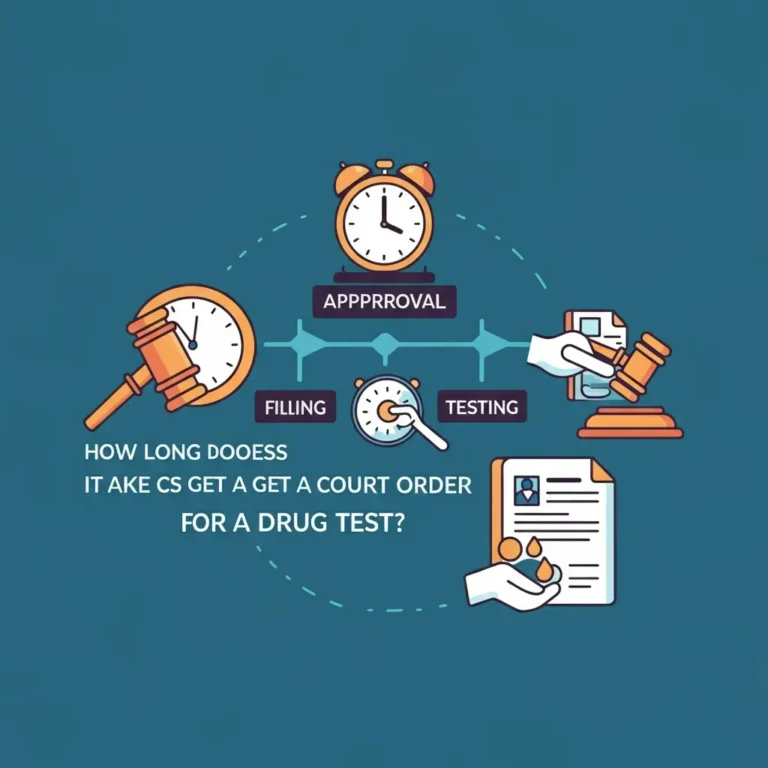How Long Does It Take to Settle an Asbestos Case?
Asbestos-related cases are often complicated and require significant legal and medical expertise to resolve. Individuals diagnosed with asbestos-related diseases such as mesothelioma, asbestosis, or lung cancer may seek compensation through lawsuits or claims against companies that exposed them to asbestos. However, the process of settling an asbestos case can take time, and many people wonder how long it will take to resolve.
The timeline for settling an asbestos case can vary greatly depending on the circumstances, the complexity of the case, the jurisdiction, and whether the case is settled out of court or proceeds to trial. In this article, we’ll break down the factors that influence how long it takes to settle an asbestos case, outline the general steps involved in an asbestos lawsuit, and provide a realistic estimate of the time it might take to settle.
Table of Contents
1. Introduction to Asbestos Lawsuits
Asbestos is a naturally occurring mineral that was commonly used in construction, manufacturing, and other industries due to its heat-resistant properties. However, exposure to asbestos can lead to serious and often fatal diseases, including mesothelioma, lung cancer, and asbestosis. Individuals who have been diagnosed with these diseases often seek compensation by filing asbestos lawsuits against companies that exposed them to asbestos fibers.
These cases are typically handled by personal injury or product liability attorneys who specialize in asbestos litigation. In some cases, victims may also file claims with asbestos trust funds set up by bankrupt companies that were responsible for the exposure.
While the process of filing an asbestos lawsuit is similar to other personal injury cases, the length of time it takes to settle can vary significantly. Some cases are resolved quickly, while others can take years, especially when the case goes to trial.
2. Common Asbestos Diseases and Their Impact
Asbestos exposure is primarily linked to three types of diseases: mesothelioma, asbestosis, and lung cancer. These conditions can take decades to develop after the initial exposure, making the legal process particularly complicated.
Mesothelioma
Mesothelioma is a rare and aggressive cancer that develops in the lining of the lungs, abdomen, or heart. It is the most well-known asbestos-related disease and is often the focus of asbestos lawsuits. The symptoms of mesothelioma may not appear until 20 to 50 years after exposure, which means that many individuals are diagnosed when the disease is already in an advanced stage.
Asbestosis
Asbestosis is a chronic lung disease caused by the inhalation of asbestos fibers. It results in scarring of the lungs and can lead to difficulty breathing, cough, and chest pain. While not as aggressive as mesothelioma, asbestosis can still significantly impact an individual’s health and quality of life.
Lung Cancer
Asbestos exposure is a known cause of lung cancer. Like mesothelioma, lung cancer due to asbestos exposure often takes decades to manifest. Patients diagnosed with lung cancer may have been exposed to asbestos in their workplace, especially in industries like construction, shipbuilding, and manufacturing.
3. How Asbestos Cases Work
When someone is diagnosed with an asbestos-related disease, they can seek compensation through legal action against the companies responsible for their exposure. This typically involves either filing an asbestos lawsuit or making a claim to an asbestos trust fund.
Filing an Asbestos Lawsuit
Filing an asbestos lawsuit involves submitting a formal legal complaint against the companies responsible for the asbestos exposure. The lawsuit can be filed in state or federal court, depending on the specifics of the case and the location of the defendant companies. The lawsuit process involves gathering evidence, expert testimony, and legal arguments to establish that the defendant companies are liable for the plaintiff’s asbestos-related illness.
Claiming Compensation from Asbestos Trust Funds
Many companies that were involved in the production or use of asbestos have filed for bankruptcy due to the overwhelming number of lawsuits against them. These companies have set up trust funds to compensate victims of asbestos exposure. Claiming compensation from an asbestos trust fund is a faster way to receive compensation than filing a lawsuit.
4. Factors That Affect the Settlement Timeline
The time it takes to settle an asbestos case depends on several factors, which can either speed up or delay the process.
The Severity of the Illness
Cases involving terminal illnesses like mesothelioma tend to move faster due to the urgency of the situation. Courts may prioritize these cases to ensure that the victim receives compensation as soon as possible. However, cases involving less severe conditions, like asbestosis, may take longer to settle, as they may not have the same immediate urgency.
The Number of Defendants Involved
Asbestos-related cases often involve multiple defendants, such as manufacturers, distributors, and employers who were responsible for asbestos exposure. The more defendants involved, the more complex the case becomes, and the longer it may take to settle. In some cases, defendants may attempt to shift blame onto each other, which can lead to delays.
Evidence and Documentation
The strength of the evidence and documentation provided by the plaintiff can also affect the timeline. Cases with strong evidence, such as clear documentation of asbestos exposure and medical records linking the exposure to the illness, are more likely to settle quickly. However, if there is a lack of evidence or disputes over the extent of the exposure, the case may take longer to resolve.
Jurisdiction and Court Backlog
The jurisdiction in which the case is filed can also affect how long it takes to settle. Some courts have a backlog of cases, which can delay the litigation process. In contrast, some jurisdictions are known for faster resolutions of asbestos cases.
Settlement vs. Trial
Most asbestos cases are settled out of court, as defendants often prefer to avoid the uncertainty and cost of a trial. However, in some cases, the parties cannot settle, and the case goes to trial. Trials can significantly lengthen the timeline for resolving a case, as they can take months or even years to conclude.
5. What to Expect During the Settlement Process
The process of settling an asbestos case typically involves several key steps:
Initial Legal Consultation
The first step in an asbestos case is consulting with an attorney who specializes in asbestos litigation. During this consultation, the lawyer will review the details of the case, including the diagnosis, exposure history, and potential defendants. The lawyer will then advise the plaintiff on the best course of action, whether that’s filing a lawsuit or making a claim with an asbestos trust fund.
Gathering Evidence and Medical Records
Once the case is underway, the attorney will work with medical experts and investigators to gather evidence of asbestos exposure and link it to the plaintiff’s illness. This may involve reviewing medical records, employment history, and environmental records.
Negotiations and Settlement Offers
After gathering evidence, the parties may enter into negotiations. Defendants may offer a settlement to avoid the cost of a trial. If both parties agree on a settlement amount, the case can be resolved relatively quickly. If no agreement is reached, the case may proceed to trial.
6. How Long Does It Take to Settle an Asbestos Case?
Shorter Cases: Settling Within a Few Months
In cases where the plaintiff has a terminal diagnosis, such as mesothelioma, and the evidence is clear, the case may settle in a few months. Some plaintiffs may receive compensation from asbestos trust funds relatively quickly, sometimes within 3-6 months of filing a claim.
Longer Cases: Multi-Year Settlements
More complex cases, such as those involving multiple defendants, limited evidence, or less severe illnesses, may take several years to resolve. If the case goes to trial, the process can take even longer. Asbestos litigation is known for its lengthy timelines, and the case may stretch on for years before a resolution is reached.
7. Possible Delays in Asbestos Cases
There are several reasons why asbestos cases may experience delays, including:
- Complex Legal and Medical Factors: Asbestos litigation involves a detailed analysis of both legal and medical issues, which can take time to resolve.
- Disputes Over Liability: Defendants may attempt to shift blame to other parties, leading to prolonged negotiations or trials.
- Insurance Companies and Settlement Negotiations: Insurance companies representing defendants may take time to negotiate settlement offers, especially if they are trying to minimize the payout.
8. Settling an Asbestos Case Out of Court
Settling out of court is the preferred option for many asbestos cases. It allows both parties to avoid the uncertainty and expense of a trial. Settlement negotiations can be lengthy but usually result in a faster resolution than going to trial.
9. Settling an Asbestos Case Through Trial
If the case goes to trial, it can take much longer to resolve. Trials involve pre-trial motions, jury selection, expert witness testimony, and deliberations, all of which can stretch out the process. In some cases, trials may take several years to conclude.
10. FAQs About Asbestos Case Settlement Timelines
Can asbestos cases be settled quickly?
Yes, in cases where the evidence is clear and the diagnosis is terminal, asbestos cases can be settled in a few months.
How do I know if my case will settle or go to trial?
Many asbestos cases settle out of court, but if the parties cannot agree on a settlement, the case may go to trial. Your attorney can guide you through this process and give you an idea of your options.
What happens if my asbestos case is delayed?
Delays in asbestos cases can occur due to a variety of factors, including disputes over liability or evidence. Your attorney will keep you updated and work to expedite the process as much as possible.
How do I get the best settlement for my asbestos case?
To get the best settlement, it’s important to have strong evidence, including medical records and proof of asbestos exposure. Working with an experienced asbestos attorney is key to negotiating a fair settlement.
Conclusion
The time it takes to settle an asbestos case depends on many factors, including the severity of the illness, the number of defendants involved, the strength of the evidence, and whether the case is settled out of court or goes to trial. While some cases can be settled in a matter of months, others may take years to resolve. Working with an experienced attorney can help speed up the process and ensure that you receive the compensation you deserve.







